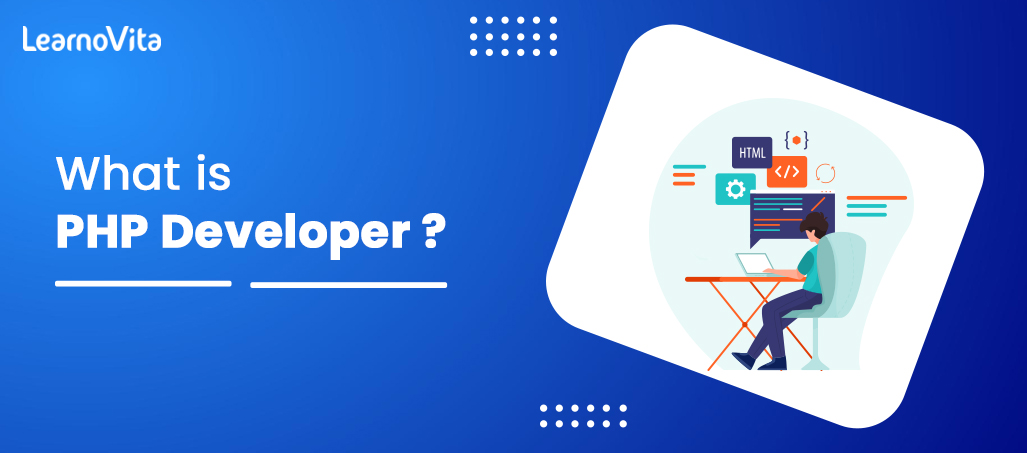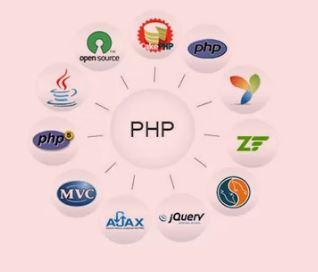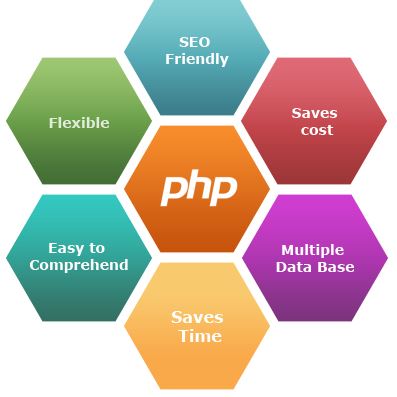- What is React JS ? Know the features of React JS
- Skills required to become a Full Stack Developer | All you need to know
- What is Angular Version?| Know more about it.
- Exploring the Various Decorators in Angular | A Complete Guide with Best Practices
- Career Advantages of AngularJS Certification | Everything You Need to Know to Become an Expert
- How to Become a Web Developer? : Everything you Need to Know about the Profile[OverView]
- PHP Cookies and Session Outline | Everything You Need to Know
- Magnific Popup: Responsive jquery | How to Implement Magnific Popup [ OverView ]
- How to Work With Forms In JavaScript?: Step-By-Step Process with REAL-TIME Examples
- Python vs Node.js | Know Their Differences and Which Should You Learn?
- Top 10 JavaScript Frameworks | A Definitive Guide with Best Practices
- Learn Ruby on Rails :Understanding Concepts and Career Prospects [ OverView ]
- AEM vs Open Source Content Management | Know Their Differences and Which Should You Learn?
- Average Web Developer Salary in India [ For Freshers and Experience ]
- What is Context in React ? : Comprehensive Guide [ For Freshers and Experience ]
- Django vs Node.js : Differences and Which Should You Learn? [ OverView ]
- JQuery vs JavaScript : Know Their Differences and Which Should You Learn?
- Front End Developer Salary in India | Everything You Need to Know [OverView]
- Control Statements in Java – Expert’s Top Picks
- Top 10 Python Libraries for Machine Learning : Step-By-Step Process
- Exploring the Various Decorators in Angular | A Complete Guide with Best Practices
- Practical Applications of Python | All you need to know [ OverView ]
- AngularJS CDN Integration : Comprehensive Guide
- What are Python KeyError Exceptions ? Expert’s Top Picks
- Best Web Development Languages To Learn | [ Job & Future ]
- How to Become a Front End Developer | Free Guide Tutorial
- What is PHP Developer ? Everything You Need to Know
- How to Become an Angular Developer?
- Basics of Service Design
- Why You Should Learn PHP?
- Top 10 Reasons to Learn JavaScript
- What is React?
- How to Become a PHP Developer?
- AngularJS Vs. Angular 2 Vs. Angular 4
- AngularJS Vs JQuery
- TypeScript Vs JavaScript
- What is UIPath?
- What is Angular?
- What is React JS ? Know the features of React JS
- Skills required to become a Full Stack Developer | All you need to know
- What is Angular Version?| Know more about it.
- Exploring the Various Decorators in Angular | A Complete Guide with Best Practices
- Career Advantages of AngularJS Certification | Everything You Need to Know to Become an Expert
- How to Become a Web Developer? : Everything you Need to Know about the Profile[OverView]
- PHP Cookies and Session Outline | Everything You Need to Know
- Magnific Popup: Responsive jquery | How to Implement Magnific Popup [ OverView ]
- How to Work With Forms In JavaScript?: Step-By-Step Process with REAL-TIME Examples
- Python vs Node.js | Know Their Differences and Which Should You Learn?
- Top 10 JavaScript Frameworks | A Definitive Guide with Best Practices
- Learn Ruby on Rails :Understanding Concepts and Career Prospects [ OverView ]
- AEM vs Open Source Content Management | Know Their Differences and Which Should You Learn?
- Average Web Developer Salary in India [ For Freshers and Experience ]
- What is Context in React ? : Comprehensive Guide [ For Freshers and Experience ]
- Django vs Node.js : Differences and Which Should You Learn? [ OverView ]
- JQuery vs JavaScript : Know Their Differences and Which Should You Learn?
- Front End Developer Salary in India | Everything You Need to Know [OverView]
- Control Statements in Java – Expert’s Top Picks
- Top 10 Python Libraries for Machine Learning : Step-By-Step Process
- Exploring the Various Decorators in Angular | A Complete Guide with Best Practices
- Practical Applications of Python | All you need to know [ OverView ]
- AngularJS CDN Integration : Comprehensive Guide
- What are Python KeyError Exceptions ? Expert’s Top Picks
- Best Web Development Languages To Learn | [ Job & Future ]
- How to Become a Front End Developer | Free Guide Tutorial
- What is PHP Developer ? Everything You Need to Know
- How to Become an Angular Developer?
- Basics of Service Design
- Why You Should Learn PHP?
- Top 10 Reasons to Learn JavaScript
- What is React?
- How to Become a PHP Developer?
- AngularJS Vs. Angular 2 Vs. Angular 4
- AngularJS Vs JQuery
- TypeScript Vs JavaScript
- What is UIPath?
- What is Angular?

What is PHP Developer ? Everything You Need to Know
Last updated on 27th Oct 2022, Artciles, Blog, Website Development
- In this article you will get
- 1.How to run python script?
- 2.What is meant by the term “PHP developer”?
- 3.PHP Development Tools
- 4.The roles and responsibilities of a PHP Developer
- 5.Abilities essential for becoming a PHP Developer
- 6.Future scope of a PHP Developer
- 7.PHP developer salary
- 8.Conclusion
Introduction
Web development typically makes heavy use of the scripting language known as PHP. The fact that PHP can be embedded into HTML, which makes it simple to administer, is the most compelling reason for web developers to study it. If not written properly, HTML commands can make for a very lengthy document.
Hypertext preprocessor is what is meant by the abbreviation “PHP.” You might have an easier time understanding how PHP works if you have a fundamental understanding of HTML. PHP makes it possible to collect, process, and use data, and it also makes it easier to interact with all of the pages.
What is meant by the term “PHP developer”?
A professional who creates applications, websites, and programs using the PHP programming language is known as a PHP developer. PHP Developers, in the true sense of the word, are a specialized subset of the ‘Developer’ position, although they may also be referred to more generically as Software Developers or Web Developers. This distinction is dependent on the job description of each individual PHP developer.
PHP is a language that is extensively used in the development of websites, and PHP developers typically work behind the scenes or create user interfaces. Additionally, PHP is an excellent choice for developers who work on contracts or as freelancers.
PHP Development Tools
The market is flooded with PHP development tools that can improve the efficacy of programming, account for a perfect IDE (integrated development environment), and enable a PHP developer to work on projects that contain a wide variety of features. The following is a list of some of the most widely used PHP development tools:
- PhpStorm
- Zend Studio
- NuSphere PhpED
- NetBeans
- Cloud9
- Aptana Studio
- CobeLobster
- Sublime Text
- PHP Debug Bar
- Eclipse

The roles and responsibilities of a PHP Developer
The following is a list of the roles and responsibilities that a PHP developer is responsible for performing:
- Maintaining a steady schedule of website development, testing, and deployment, as well as innovation in website design.
- Maintaining, developing, and documenting PHP-based web applications is an efficient use of your time.
- Use standard web development tools to make web apps that are stable and scalable, and then use those same tools to keep those apps running.
- Conduct testing in multiple browsers, and respond to concerns raised by users based on the information they provide.
- Create PHP code that is clean and object-oriented, and SQL queries that are effective.
- Existing websites should be brought up to date, and semantic markup should be written.
- Perform analysis, design, and development on application systems, as well as development assistance.
- Keep careful records of the website’s specifications, product details, functions, deadlines, structures, and other information.
- Do a risk analysis of the business requirements to figure out what problems might come up and how to solve them.
- In order to come up with workflows, data analysis libraries, and interfaces that are specific to the client, prepare the solutions by using the appropriate tools.
- Give product managers and other employees your expert advice and direction based on your technical experience.
- Specifications and procedures, both technical and non-technical, should be recorded and documented.
- Ensure that all of the documentation is kept up-to-date and managed properly.
- Review product requirement documents.
- Make business recommendations based on technical factors like performance, scalability, security, and reliability.
- Share the status of all tasks, schedules, suggestions, and evaluations, as well as any technical or process concerns that are going on behind the scenes.
- Participate in the writing of design parameters alongside seasoned consultants.
- Take part in conference calls with other partners.
- Address any development concerns that have been identified in relation to PHP.
Abilities essential for becoming a PHP Developer
A competent PHP developer possesses the following skills and knowledge:
- PHP at the starting level
- Ajax
- MySQL
- jQuery
- HTML, CSS, and JavaScript expertise for full-stack development, unix/linux, APIs, and MVC framework architecture.
- The open-source web framework CakePHP.
- PHPUnit: A framework for unit testing
- Photoshop and additional design applications.
- Soft skills are things like being able to communicate well and solve problems, as well as being able to think critically.
Developers who are already working in the field can learn more about PHP if they want to. A successful career path includes continuing education and continuing education. Professionals can not only move up in their current jobs by learning new skills, but they can also use those skills to get new jobs in the same industry.
In addition to knowing about graphics or SEO, some employers may say that these professionals have a wide range of other skills. Others may seek industry-specific qualifications. Some may even request gaming experiences on social networking sites. Depending on the position.
As a PHP developer, proficiency in various phases of the software development lifecycle can increase your chances of advancing to better positions in the future. The spectrum of skills may range from requirements documentation to project management.
How to become a PHP Programmer?
Typically, developers enter the field with a bachelor’s degree in software engineering, computer science, information science, or a similar field. Sometimes, the requirements to become a web developer are lower than those of a software developer.
In their student years, developers can gain experience through projects, internships, and other means. PHP developer certifications and courses are also available for developers who wish to stay current with the latest technology.
Let us now quickly examine the steps required to become a PHP developer:
Obtain a relevant degree:
A bachelor’s degree in a relevant field is required for a successful career as a PHP developer. As a first step, you should concentrate on obtaining the appropriate bachelor’s degree to better prepare for a PHP developer position.
Ideally, it should be a technical graduate program, such as BCA, MCA, or DOEACC “O” level. Bachelor’s degree in a relevant field will help you better understand the concepts when you enrol in advanced PHP training. Also, your profile will be stronger if you can get experience in computer programming or making software.
Receiving training in PHP:
As a next step, it is advised that you begin learning PHP, as you now possess the relevant degree and prerequisite knowledge to do so. Programming fundamentals, simple algorithms, and data structures should be your first priority in preparation. There are numerous resources for learning PHP, including.
- I
- Internet resources and reputable websites.
- Books by subject matter authorities.
- E-Books.
- Institutions of e-learning offer courses.
- Online Lessons.
- Physical classroom-based instruction.
- YouTube instructions.
- Taking part in Seminars and Webinars.
- Trusted Websites and weblogs.
- Acquire Practical Experience in PHP.
After learning enough about PHP and its basic ideas and getting the training you need, you should start working on PHP projects. This will not only strengthen your theoretical knowledge of PHP, but it will also add value to your resume and set you apart from other candidates. Working on PHP projects will prepare you for real-world challenges when you begin a career in PHP. Additionally, knowledge of MySQL and jQuery is required for project work.
Enroll for certifications:
Certifications are essential for verifying skills. Getting a PHP certificate from a top online education company like will help you learn the skills you need. PHP certifications show that you have worked at different levels of PHP and are good at managing PHP processes and projects in the real world.
Apply to PHP Job Openings and pass the selection procedure:
The last steps to getting a job in PHP are to look for job openings, fill out an application, and do well in the interview. Check out these Web Developer Interview Questions to make sure you’re ready for your job interviews. Before your interview, attempt to review all PHP-related concepts, practical projects, and experiences so that you can successfully respond to all questions posed by the recruiters.
The importance of PHP for website development:
In today’s world, it’s important for your business to have a website that you build and keep up to date. The means that are most significant are planning and development. The development of websites and web applications frequently makes use of PHP programming, which is one of the languages in this category. PHP is a server-side pre-arranging language that runs a web server that is designed to make dynamic web pages and applications.
PHP has a wide range of applications and is very useful. PHP is a web development option that is safe, quick, and reliable, and it offers many components and benefits, which makes it available to a large number of people. It is to be given an idea regarding what has made PHP programming possibly the most widely recognized programming language for the Web. This is to be done so that an understanding of PHP programming can be gained. Utilizing PHP as the language that it is written in has many benefits, some of which are listed below for your convenience. PHP supports database management systems such as MySQL, Oracle, and Sybase, amongst others:
- 1.When you use servers like Apache, IIS, and others, you have a good chance of making money.
- 2. PHP can operate on a variety of platforms, including Windows, Linux, and others.
- 3. Creating a website using PHP is a very simple process because of the straightforward capabilities, procedures, and punctuation of this programming language.
- 4. In addition, the Data Set Administration Framework (DSAM) and other open source data sets are supported by PHP.
- 5. Not only this, but PHP has become viable with open source programming joining it. Some examples of this include Drupal, Joomla, Typo3, osCommerce, and other similar projects.

Future scope of a PHP Developer
Here are several advantages to using PHP:
- PHP is a popular programming language.
- PHP is commonly used on blog sites because it is simple to learn and modify.
- With the assistance of a CMS, it is simple to publish a website in PHP.
- Database-driven server-based web apps can be made easily with MySQL and PHP by non-technical developers.
- With the addition of new frameworks and cutting-edge technologies, PHP remains feature-rich and current.
- PHP’s simple approach has made it popular and ensures its future applications.
PHP developer salary
A PHP developer’s salary is determined by a number of factors, including but not limited to job role and level of experience. According to PayScale, the annual salary that is considered to be the norm for PHP developers in India is $278,716. The typical yearly salary for an entry-level PHP developer with less than one year of experience is 172,073 yen.
PHP developers with one to four years of experience can anticipate earning approximately 264,742 yen annually. PHP Developers who have between 5 and 9 years of experience can expect an annual salary of 543,053, whereas PHP Developers who have between 10 and 19 years of experience can expect an annual salary of $885,098.
According to Glassdoor, the average annual salary for a PHP Developer in the United States is $81,796 USD. The median annual salary for a PHP developer with at least five years of experience is $130,000, while entry-level developers earn $63,375 per year on average.
Conclusion
In conclusion, those who are interested in a career in PHP should seriously consider getting certified. Enrolling in a PHP course and successfully passing the certification exam are both simple steps that can be taken to accomplish this goal. Once you have the certification, you will be able to show your current and potential employers that you know how to use PHP programming well. One can acquire knowledge of PHP through the use of a variety of online resources, classes provided by educational institutions such as colleges and universities, and other educational programs, in addition to online learning institutes.